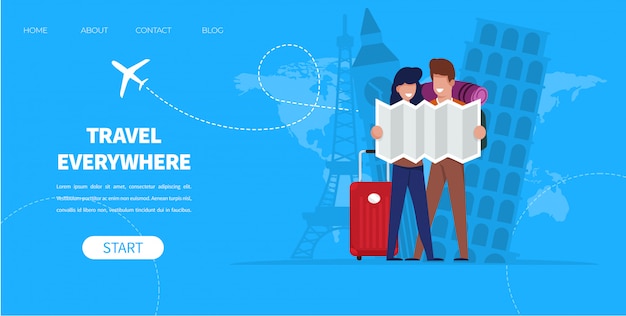Many people inspire me in the world of travel writing, and Tim Leffel is definitely one of them. He’s been sharing insights on budget travel long before I even knew what travel – let alone budget travel – was all about. Tim has explored places I’ve only dreamt of and even took the time to provide feedback on my book. I have a deep respect for his expertise in finding great value destinations to live in around the world. I often receive questions about relocating abroad, especially with a family, so I was thrilled when Tim agreed to share his thoughts on this topic. Let’s dive into Tim’s perspective.
In my daily life, I send my daughter to school across town in a taxi for just $3, grab a couple of warm pastries at the local bakery for 50 cents, and enjoy a fresh-squeezed 16-ounce juice for a little over a dollar. For lunch, I can have a multi-course meal at a nearby restaurant with table service for only $4. If I want to treat my wife to a night out at the symphony or a concert, it’ll cost us around $12 for both of us. Our monthly electricity bill rarely exceeds $20, and a maid cleans our four-bedroom house from top to bottom for $17.
No, I haven’t hopped into a time machine and gone back a few decades. I’ve simply relocated. I now reside in central Mexico, in a historic highland town called Guanajuato. I’m just one of the millions of Americans who have moved abroad in search of a better quality of life at a more affordable price. Joining me are Canadians, Brits, Australians, and others who have found it increasingly challenging to get ahead in the so-called wealthy countries and have opted to restart their lives in more cost-effective locations.
If you’ve spent time traveling abroad or even read Matt’s book on traveling the world on a budget, you’ll understand that it’s often cheaper to explore the globe for a year than to cover the bills in a country like the United States or Canada. Developed nations offer convenience, variety, and solid infrastructure, but they come with higher taxes, pricey housing, and substantial expenses for healthcare, utilities, and transportation. By moving from a wealthy country to a less affluent one, you can easily slash your expenses in half without having to make drastic sacrifices in your standard of living. It’s like going on a diet without giving up your favorite treats like ice cream or cheeseburgers.
Relocating to another country for a better life at half the cost may seem unconventional or radical to some, but those who have taken the leap often express regrets about not doing it sooner. Currently, digital nomads, families, and retirees are significantly boosting their monthly savings or discretionary spending without increasing their income – they’ve simply changed their address.
I’ve spoken with expats residing in numerous affordable countries worldwide, and the savings they experience are remarkable, particularly if they previously lived in an expensive city like New York. For instance, one individual was paying $1,300 monthly for a one-third share of a cramped Manhattan apartment. Now, they pay just $300 a month for a more spacious two-bedroom place in Bangkok, Thailand. The shift in expenses has allowed them to not only build a travel fund but also establish substantial savings. Despite earning less, they manage to save at least twice as much as before.
These examples primarily focus on big cities. Naturally, costs decrease further when settling in smaller towns or cities, whether in Mexico, Panama, Portugal, or Malaysia. While housing costs may witness the most significant drop, expenses for food, entertainment, transportation, and services requiring human labor also decrease. This includes healthcare and dental care, which for many self-employed Americans, can decrease from 20% of their income to less than 5%. For a comparison of average costs in different locations compared to your current residence, check out the price comparison site Numbeo.com.
Moving to a new country may seem daunting, but like any major endeavor, it involves taking a series of small steps that lead you to your desired destination. While there’s no one-size-fits-all approach, there are key tasks to add to your checklist:
- Determine your income source: Living in a more affordable country allows you to stretch your money further. Earning an income in the local currency may reduce some of your financial advantages. Running a local business, especially one catering to expats, can be profitable. Many individuals opt for remote work, such as writing, designing, or working in tech, to earn in a stronger currency and spend locally.
- Conduct a trial run: Living in a place is different from visiting as a tourist. Before committing to a move, spend time in the prospective location, immersing yourself in the local lifestyle. Renting an apartment in a real neighborhood, shopping at local markets, and embracing local eateries can provide valuable insights
